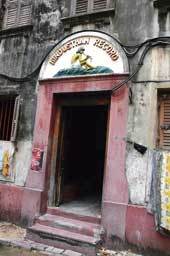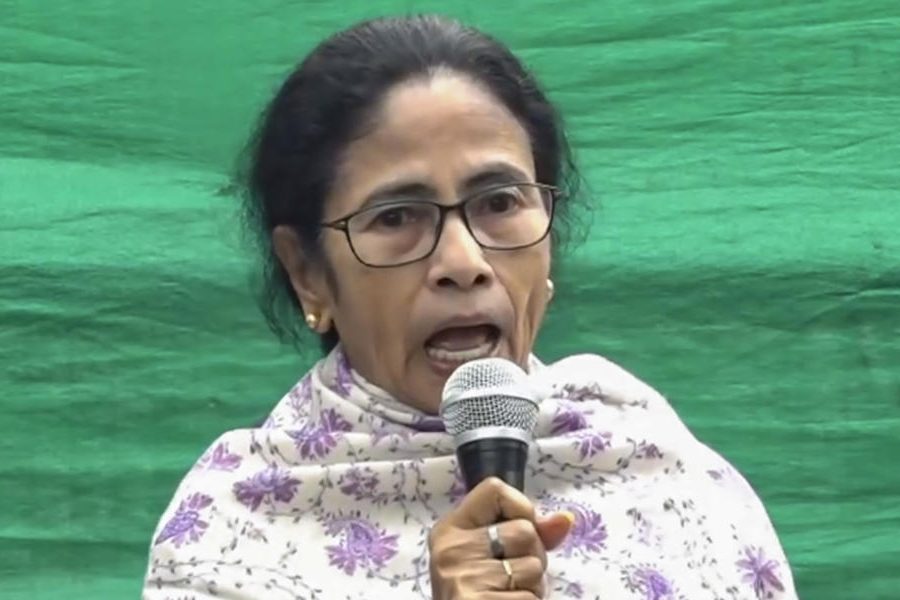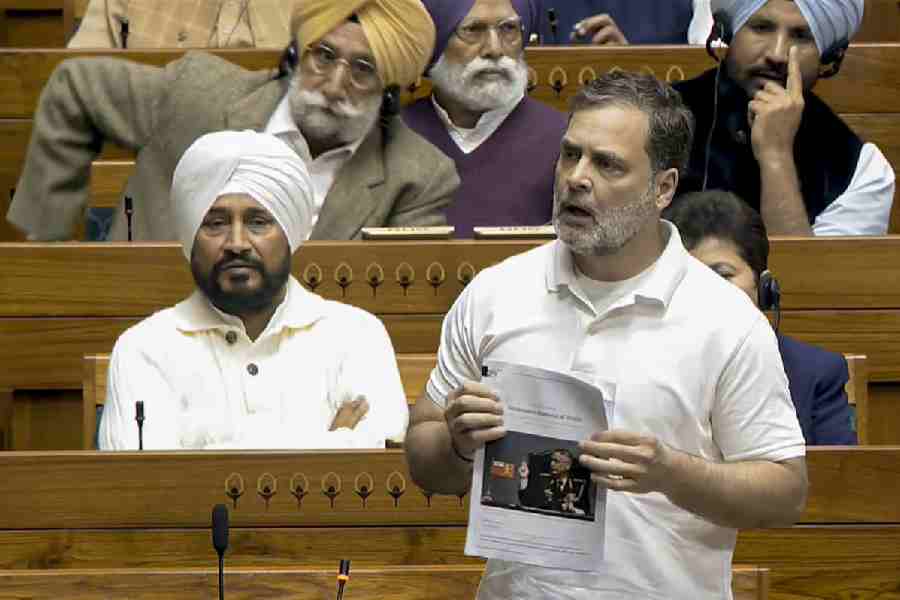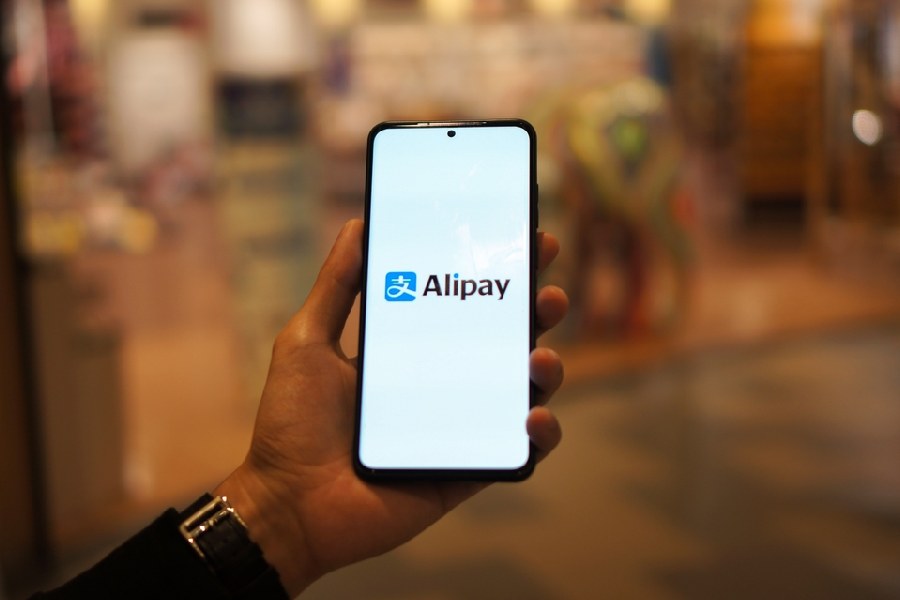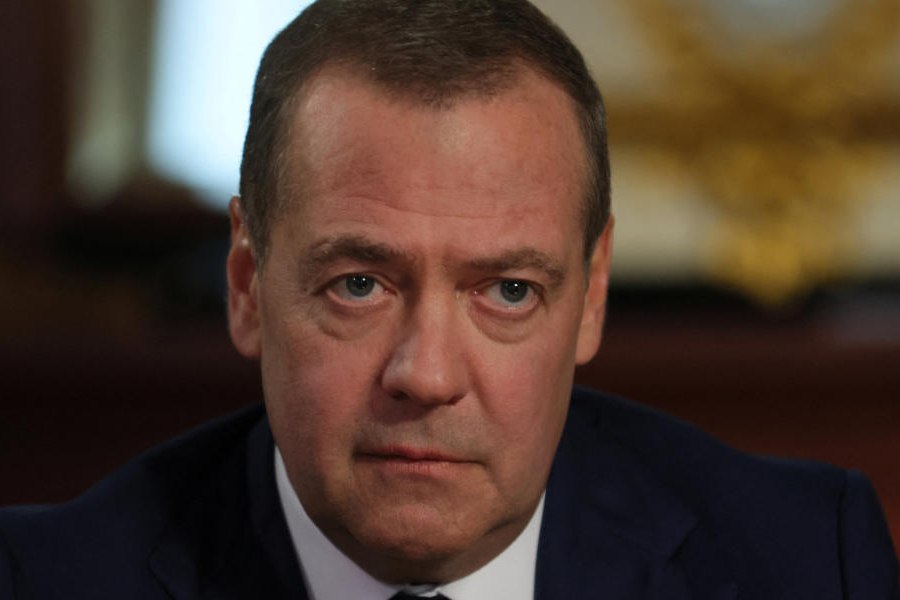 |
| The house in Akrur Datta Lane (picture by Bishwarup Dutta) and (below) the letter by Rabindranath Tagore |
 |
The house at 6/1 Akrur Datta Lane near Subodh Mallik Square may have little that is musical about it any longer, but its once-familiar logo in low relief of the lonely shepherd boy playing the flute still occupies the space under the arch spanning its door.
Under the label of Hindusthan Record, Rabindranath Tagore had recorded his first song “Tabu mone rekho” here in 1932, and had lent support to young entrepreneur CC Saha’s endeavour by penning a few lines in praise of an establishment, the first of its kind in the country.
The next recording was by Atulprasad Sen, the only one that the poet ever did. And although Nazrul Islam never recorded any song here, he did join the addas along with Sachin Deb Barman, Anupam Ghatak and Birendra Krishna Bhadra.
It is said that CC Saha or Chandi Charan had been introduced to Tagore in Heidelberg by Soumendranath Tagore, and the poet was among the 500 shareholders of Hindusthan Record.
Chandi Charan visited Germany to buy recording equipment, and subsequently George Neumann from that country helped him trap the voices of great artistes on resin. The company had the distinction of bringing a Neumann disc-cutting machine from Germany in 1932.
This piece of antiquity has since been donated to the Birla Industrial Museum. Hindusthan was the first to transfer from optical film to disc.
At the same time, CC Saha opened a well-stocked music shop at the crossing of Madan Street and Dharamtalla. Although it is dusty, it is still a mecca for lovers of Bengali music. It may sound surprising, but the shop still sells Bengali music from its golden era down to present times.
Hindusthan Musical Products Ltd, as it was officially called, can take credit for making the first recordings of classical music stalwarts such as Ustad Faiyaz Khan and Ustad Bade Ghulam Ali Khan, besides launching a star like Kundan Lal Saigal.
The first Indian-owned music company attracted a galaxy of artistes like Pankaj Mallik and Sachin Deb Burman. After BN Sircar set up his film production company named New Theatres in Calcutta, its songs were initially released under that label. From the 1940s onwards, the company extended its repertoire to include songs popular in the Hindi-speaking belt, and numerous recording were conducted in Bhojpuri, UP folk, Chhattisgarhi folk, qawwali, bhajans and aartis. It also made forays into Oriya, Nepali and Gorkhali song markets.
But the mainstay of Hindusthan Records remained Bengali songs and artistes like Debabrata Biswas, Subinoy Roy, Rajeshwari Datta, Shantideb Ghosh, Purna Das Baul and Asoketaru Bandopadhyay remain its bestsellers.
The successor of Hindusthan Musical Products was the Indian Record Manufacturing Company (Inreco) set up in 1977, the third record manufacturing unit in India that was Indian-owned.
Inreco started with a wide range of artistes from Punjabi to Bhojpuri to Marathi, Tamil and Malayalam. Lata Mangeshkar, Asha Bhonsle, Pandit Mallikarjun Mansur, Kumar Gandharva, Ustad Amir Khan and Manna Dey were among the artistes it recorded.
Sobhan Lal Saha, son of CC Saha, who is director of the Hindusthan Musical Products Ltd and the Indian Record Manufacturing Company, says the company suffered a setback as its record factory in Taratala suffered “obsolescence” and faced labour trouble.
The company has not yet fully recovered from its impact. It will not go into hardware any longer but will focus on software in the field of music. Only recently has it reissued the recordings of Debarata Biswas and Rajeswari Dutta, along with some new recordings.
Saha is trying hard to set up a museum in the house where Hindusthan Record began its operations. An organ and a piano imported from Germany in 1932 will be restored and displayed here. It has recently launched a website —www.inrhind.in

